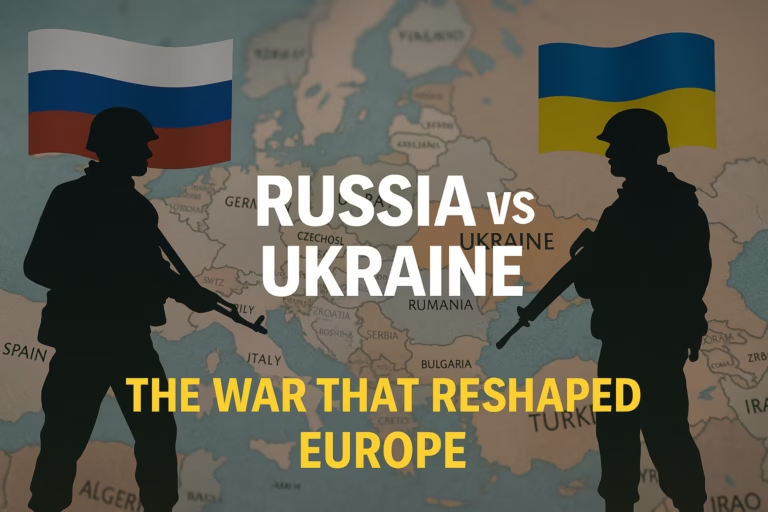Introduction
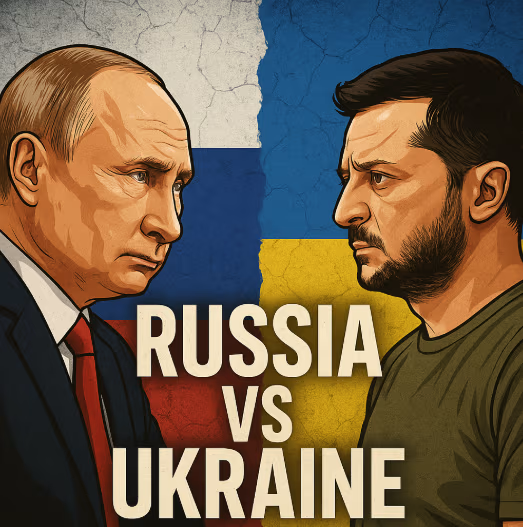
The conflict between Russia and Ukraine has become one of the most significant events of the 21st century. A political dispute that escalated to a war between two countries. This war has affected the lives of millions and brutally exposed the international law and order.
HISTORICAL BACKGROUND
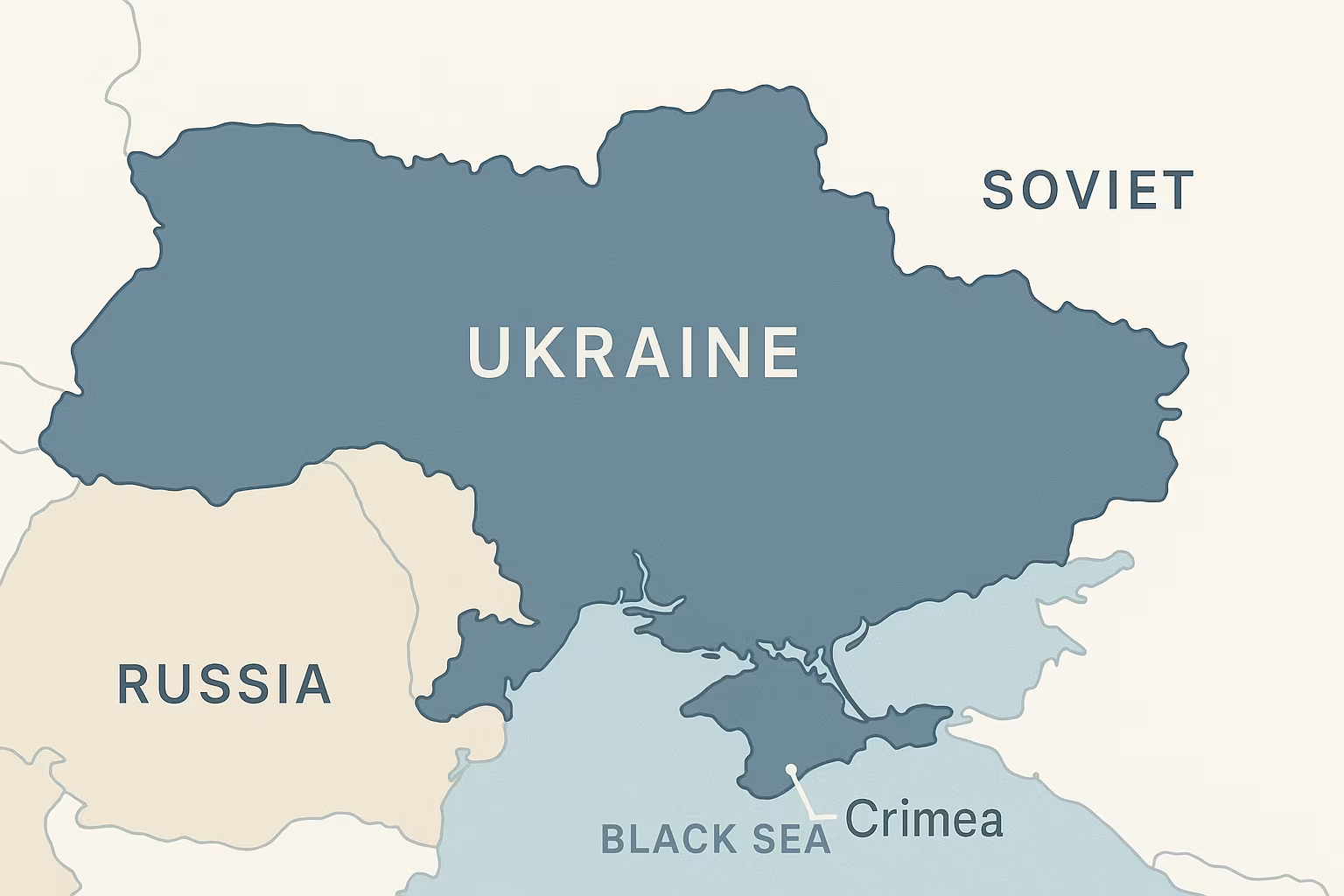
Before 1991, Ukraine was part of the Soviet Union. Since its independence, Ukraine has had a complicated relationship with Russia. Some people wanted a close relationship with Europe and the Western world, while others wanted strong ties with Moscow. Crimea, which was given to Ukraine in 1954, became a point of contention between the two countries from the very beginning, as it has strategic importance in the Black Sea.
The Orange Revolution:
Tension between the two countries became more visible during the 2004 presidential election. As there were allegations of vote-rigging in favor of the pro-Russian candidate (Viktor Yanukovych), mass protests against vote-rigging resulted in the re-elections, in which the pro-Western candidate (Viktor Yushchenko) secured victory.
As Yushchenko ties close relations with Europe and NATO, Russia views this as a threat.
Annexation of Crimea:
In 2014, Viktor Yanukovych, the president of Ukraine, sought to strengthen ties with the Russian government by rejecting an agreement with the European Union. This decision sparked mass protests, known as the Euromaidan movement, which ultimately led to Yanukovych’s removal from power. Following his ousting, Russia seized control of Crimea, claiming it was protecting the rights of Russian-speaking individuals and Russian culture in the region. Pro-Russian groups in eastern Ukraine began violent protests, expressing their desire to align with Russia. This escalation marked the beginning of a long and violent conflict. In response, the Organization for Security and Co-operation in Europe (OSCE), along with the involvement of both Russia and Ukraine, proposed a peace agreement known as the Minsk agreements to halt the fighting, but these efforts did not result in lasting peace.
The proclamation of Crimea by the Russian government led to Russia’s suspension from the G8. And President Yanukovych fled the country during these protests.
Full-Scale Invasion:
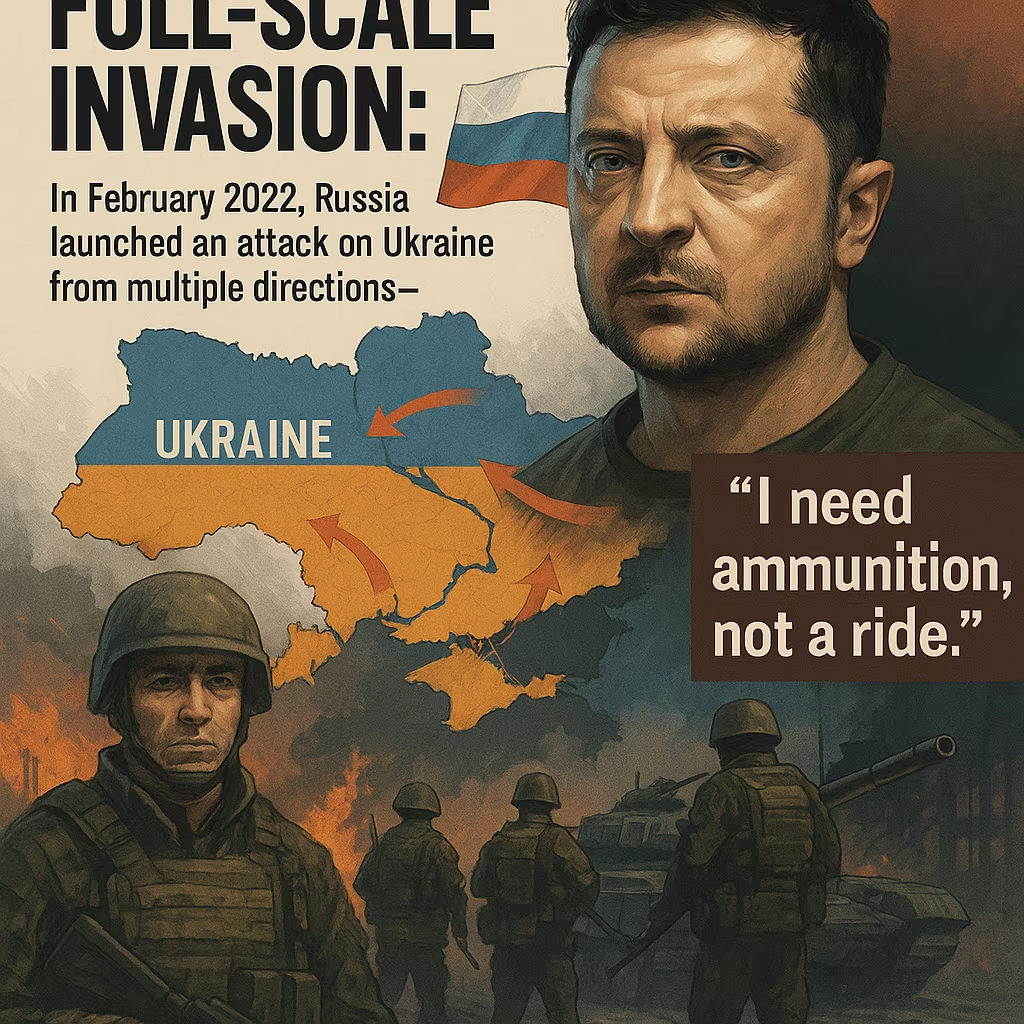
In February 2022, Russia launched an attack on Ukraine from multiple directions—northward from Belarus toward Kyiv, eastward from Russia, and southward from Crimea. Russian President Vladimir Putin justified this invasion by claiming it was necessary to demilitarize Ukraine, a statement that has been widely dismissed as propaganda.
Despite initial expectations of a Russian victory, Ukrainian forces demonstrated remarkable resilience. Ukrainian President Volodymyr Zelenskyy, a former comedian turned political leader, emerged as a strong wartime leader by steadfastly opposing Russia. His famous quote, “I need ammunition, not a ride,” became a symbol of Ukraine’s determination.
Key Battles and Development:
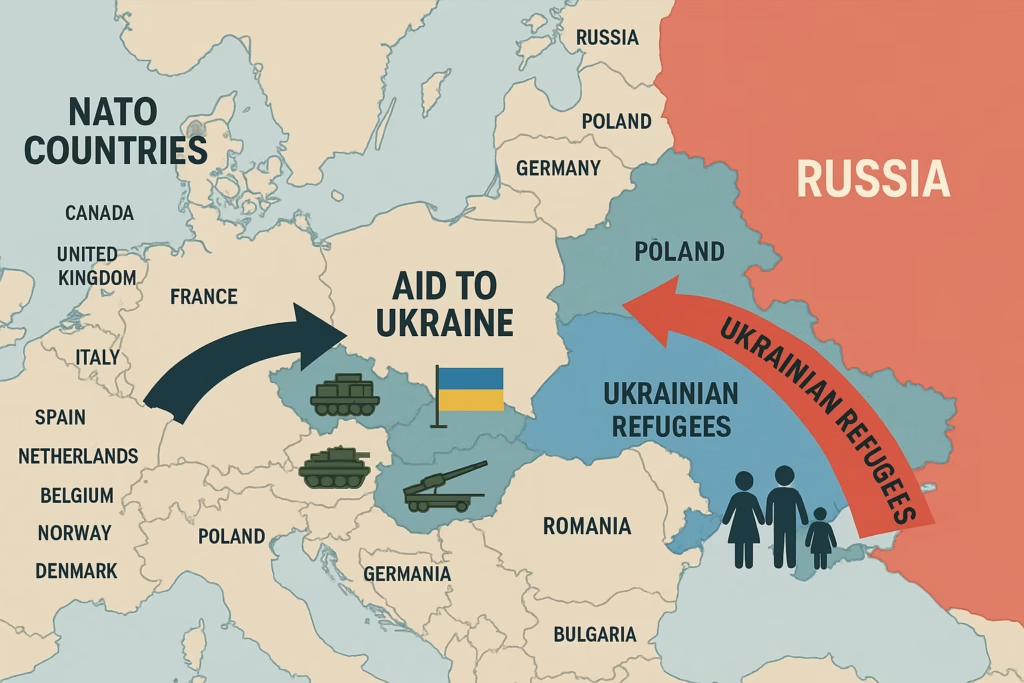
Due to strong Ukrainian defense and logistical issues of the Russian army, the Russians failed in their attempt to capture the capital of Ukraine (Kyiv). This changed the perception of the people of war.
The Russian army surrounded Mariupol for weeks, cutting off supplies and causing heavy destruction along with significant loss of life. People were trapped inside the city without food, water, or electricity. Bakhmut, on the other hand, is a city that demonstrates Ukraine’s strong defense and Russia’s firm determination to gain control. The fighting in this city lasted for months. Both of these cities highlight the intensity and deadliness of the war.
At the end of 2022 and in the beginning of 2023, Ukrainian forces launched some successful attacks, taking the key territories of Ukraine, including the city of Kherson.
International Response:
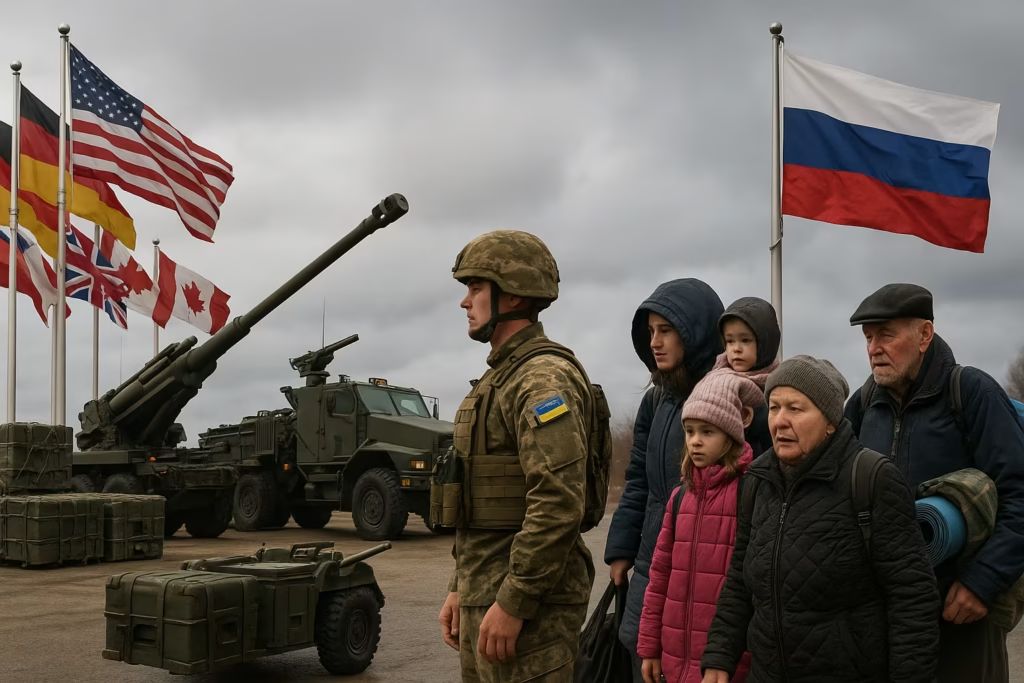
Western countries imposed many sanctions on Russia by targeting banks, offshore properties, and the energy sectors. These sanctions resulted in a global energy shortage as well as a scarcity of food.
The USA, NATO, and many other countries have sent billions of dollars in aid to Ukraine. Advanced military equipment has been supplied to Ukraine, enhancing its defensive capabilities.
During the war, many Ukrainian people fled to neighboring countries such as Poland, Germany, and Romania. These countries often provide refugees with food, shelter, and education. According to estimates, over 8 million people have left Ukraine for other countries.
Economic and social impact:
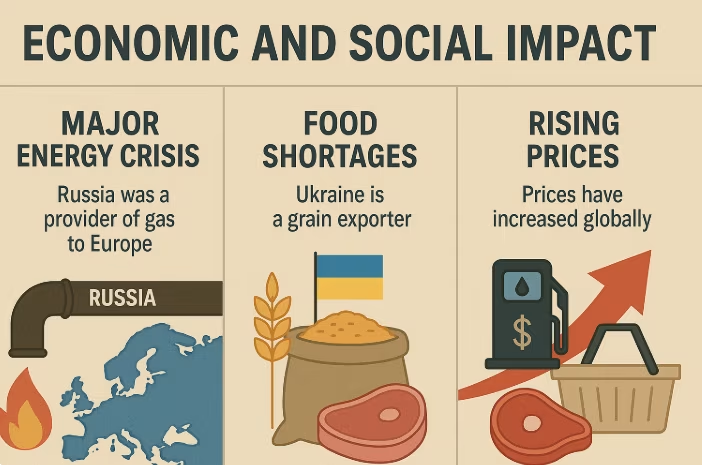
Russia was one of the biggest providers of gas to Europe, which led to a major energy crisis following the conflict. This situation has prompted an increased reliance on renewable energy resources.
Additionally, Ukraine is one of the largest grain exporters, and the blockade of its ports due to the war has resulted in food shortages in the Middle East and Africa.
As a consequence of the war, the prices of fuel, food, and other essential goods have risen on a global scale.
Geopolitics:
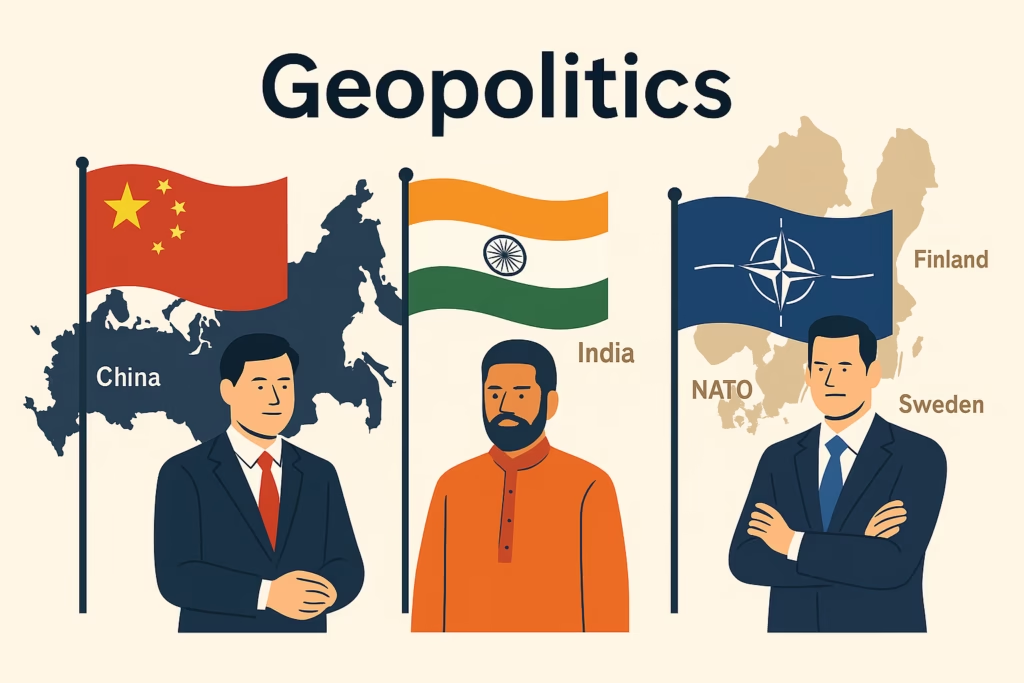
China has taken a clever approach by positioning itself as neutral while still maintaining its ties with Moscow. India has adopted a cautious stance, urging peace between the two countries without endorsing Russia’s actions, especially since it relies heavily on Russia for its energy resources. Meanwhile, the invasion has expedited NATO’s expansion, with historically neutral countries Finland and Sweden joining the alliance.
Peace Talks:
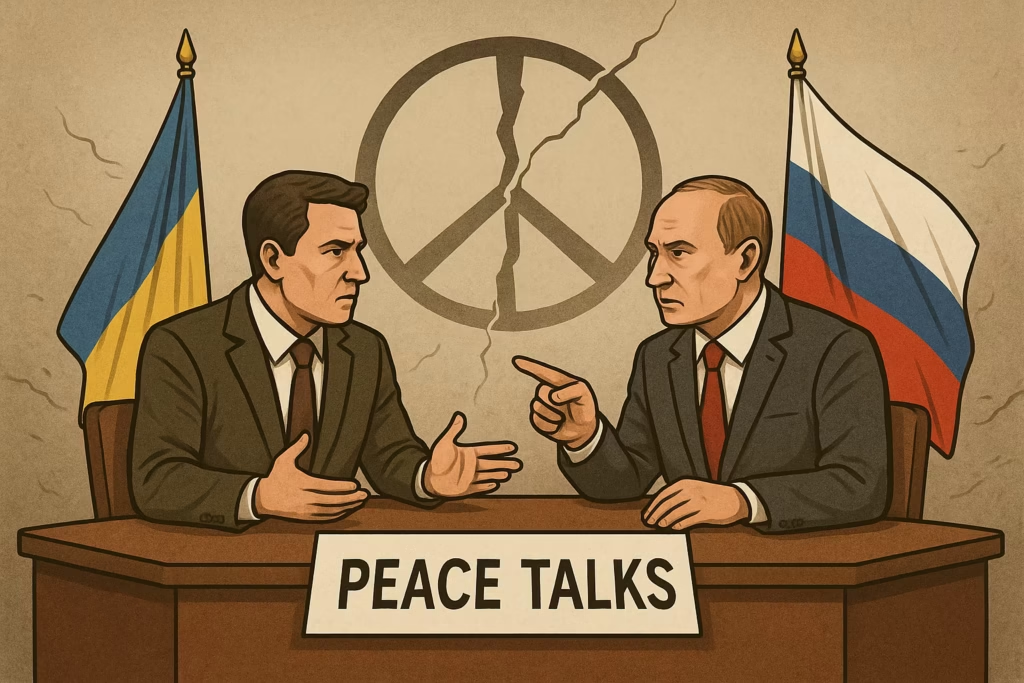
Numerous discussions have taken place, but Ukraine and Russia have not agreed on terms. Ukraine demands that Russia return all occupied territories, while Russia insists on keeping control of the annexed regions.
Both countries suffered significant losses in infrastructure and human lives during this war, leading to widespread distress around the world. As the conflict drags on, reaching a peace agreement that satisfies all parties becomes increasingly difficult.
What’s Next:
The future remains uncertain. People believe that the issue should be resolved through diplomacy, but both countries firmly hold their stances, making it harder to end the conflict peacefully.
The Russia-Ukraine war has changed the dynamics of global politics. It is a significant event in the modern world that challenges the concepts of freedom and independence. This war demonstrates that conflicts over land continue to cause great suffering in today’s world.

